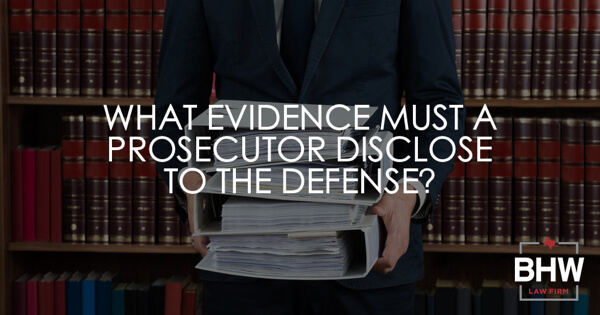
New CCA Opinion – Watkins v. State – Clearly Interprets the Duty of the State in Discovery.
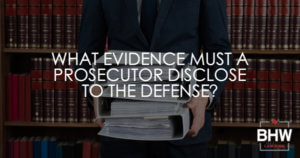 Prosecutors in Texas must disclose almost all of the evidence in their possession to the defense. Disclosure is the rule and not the exception in Texas.1 Section 39.14(a) of the Texas Code of Criminal Procedure requires the prosecution to disclose anything that “constitutes or contains evidence material to any matter involved in the action. . .”2
Prosecutors in Texas must disclose almost all of the evidence in their possession to the defense. Disclosure is the rule and not the exception in Texas.1 Section 39.14(a) of the Texas Code of Criminal Procedure requires the prosecution to disclose anything that “constitutes or contains evidence material to any matter involved in the action. . .”2
The Texas Court of Criminal Appeals in Watkins v. State (see opinion HERE) recently interpreted the word “material” to mean the equivalent of “relevant,” while interpreting the phrase, “any matter involved in the action,” as covering “any number of subsidiary issues impacting the outcome of the proceedings.”3 This interpretation requires Texas prosecutors to disclose virtually all of the evidence in their possession—more than they are mandated to under the federal Constitution as interpreted by the Supreme Court in Brady v. Maryland. In fact, for some types of evidence, the statute does not require the evidence to meet any materiality requirement.4 According to § 39.14(h), evidence tending to negate the guilt or mitigate the punishment of a defendant must be disclosed, regardless of whether the evidence is considered material or requested by the defense.5
Article 39.14 and the case law that accompanies it effectively establish an open-file policy between the prosecution and defense. As the Watkins court put it: “[w]ith the exception of privileged evidence and evidence specifically covered by other statutory provisions, the only obstacle to disclosure of evidence not [exculpatory in nature] is the lack of a specific request.”6
The “materiality” language that the Watkins court addressed is actually language that was carried over from a previous version of Article 39.14—language with its own case law that prosecutors and trial courts carried into practice even after the statute was amended.
How did Prosecutors Interpret 39.14 Before Watkins?
The current version of Article 39.14 came about through the Michael Morton Act, signed into law by Governor Perry in 2013. This bill was a response to the case of Michael Morton, a man wrongfully convicted for the murder of his wife in 1987 after the prosecutor in that case withheld evidence that could have proven his innocence. Morton was exonerated in 2011 after DNA evidence revealed that someone else committed the murder, and the state legislature took up the task of passing a complete overhaul of discovery procedure in Texas.
Because the same language— “material to any matter involved in the action”—was retained by the Morton amendments, confusion persisted among some attorneys about whether the pre-Morton “materiality” jurisprudence is properly attributed to the new, post-Morton version of Article 39.14. However, as the Watkins court addressed, those pre-Morton cases never actually spoke to the issue of what “material” actually meant.7
The Confusion Surrounding “Material”
You see, the pre-Morton Article 39.14 gave trial courts the discretion whether to order the prosecution to disclose evidence upon a motion showing good cause from the defense.8 The pre-Morton “materiality” jurisprudence was inextricably linked with the standard for determining whether a trial court abused its discretion in refusing to issue such an order, and it did not have anything to do with the phrase, “material to any matter involved in the action.”9
The standard for determining whether a trial court abused its discretion in this way was whether the judge’s ruling deprived the defendant of access to evidence that was material to the defendant’s defense.10 “Material,” in this sense, was defined “’under Texas law in the due process terms employed by the Supreme Court in United States v. Agurs.’”11 This meant that a trial judge abused his or her discretion in refusing to order the disclosure of evidence when it was exculpatory in nature.12
Watkins Clearing Things Up
As we now know, the procedure that discovery followed before the Morton amendments was completely removed from Article 39.14, and the “materiality” jurisprudence that was tied to it went out the door as well.13 Because of the confusion that accompanied the judicial use of similar language in close contexts pre-Morton, it is understandable if some prosecutors may have—before Watkins—interpreted the, “material to any matter involved in the action,” language as being loaded with the pre-Morton jurisprudence. Other prosecutors, as shown in Watkins below, applied their own limiting interpretations to the language.
In Watkins, the defense counsel sent a discovery request to the prosecutor pursuant to § 39.14 asking for, “any other tangible things not otherwise privileged that constitute or contain evidence material to any matter involved in the case.”14 He “also requested notice of the State’s intent to offer any extraneous offenses, which the prosecution provided.”15 Watkins was convicted of second-degree possession of a controlled substance, and during the punishment phase of trial, the state sought to introduce 34 exhibits for the purpose of proving up Watkins’ prior felony convictions for enhancement purposes.16 The defense objected—the prosecutor did not disclose the exhibits to the defense because he did not believe Article 39.14 applied to punishment.17 The Trial court overruled the objection, allowing the evidence to be admitted.18
The issue surrounding the prosecution’s non-disclosure eventually worked its way up to the Court of Criminal Appeals, where the Watkins court seized the opportunity to review the requirements of Article 39.14 in light of the Michael Morton Act amendments. In short, the Court laid out the history of Article 39.14 explained above, and it clearly established that Texas now has disclosure requirements that track the spirit of the Michael Morton Act.19
[1] Watkins v. State, NO. PD-1015-18 (Tex. Crim. App. 2021).[2] Tex. Code Crim. Proc. Ann. art. 39.14(a) (West 2017).
[3] Watkins, at 24-25.
[4] Tex. Code Crim. Proc. Ann. art. 39.14(h) (West 2017).
[5] Id.
[6] Watkins, at 23.
[7] Id. at 35.
[8] TEX. Code Crim. Proc. art. 39.14 (2009).
[9] Watkins at 35.
[10] Id. at 41-42.
[11] Id. at 40 (quoting United States v. Agurs, 427 U.S. 97 (1976)).
[12] Id. at 41.
[13] See generally Watkins.
[14] Watkins at 4.
[15] Id.
[16] Id.
[17] Id.
[18] Id. at 5.
[19] See generally Watkins.

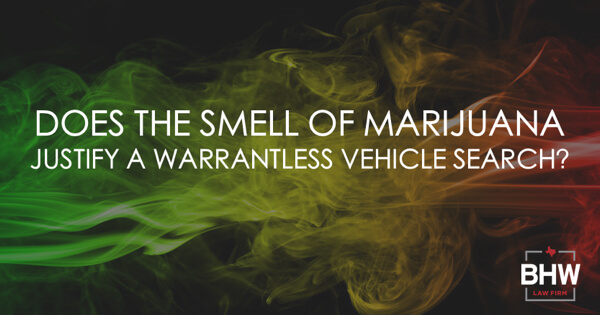
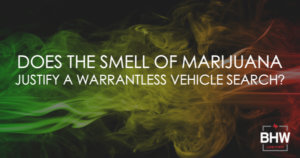 In Texas, the answer is yes. The possession of marijuana is a crime in Texas, so if an officer smells marijuana emanating from your car, he has probable cause to believe a crime is being committed. With probable cause, the law permits the officer to stop and search your car— regardless of whether you consent.
In Texas, the answer is yes. The possession of marijuana is a crime in Texas, so if an officer smells marijuana emanating from your car, he has probable cause to believe a crime is being committed. With probable cause, the law permits the officer to stop and search your car— regardless of whether you consent.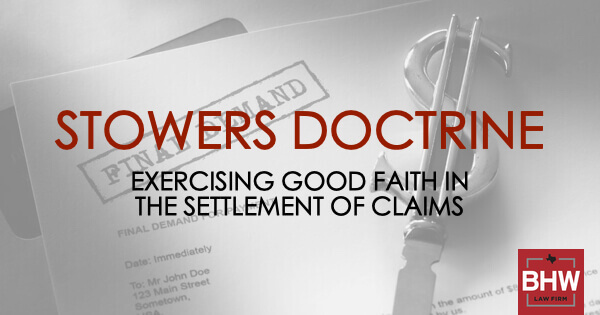
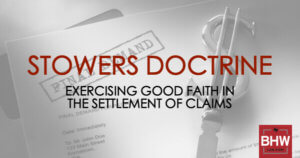 Under the typical Texas liability insurance policy both the insurer and the insured have mutual obligations and rights. The insured pays a premium to their insurance company to protect against unexpected losses and claims. On the other hand, the insurance company has a duty to defend against claims covered under the policy and a right to control the defense of litigation should it arise.
Under the typical Texas liability insurance policy both the insurer and the insured have mutual obligations and rights. The insured pays a premium to their insurance company to protect against unexpected losses and claims. On the other hand, the insurance company has a duty to defend against claims covered under the policy and a right to control the defense of litigation should it arise.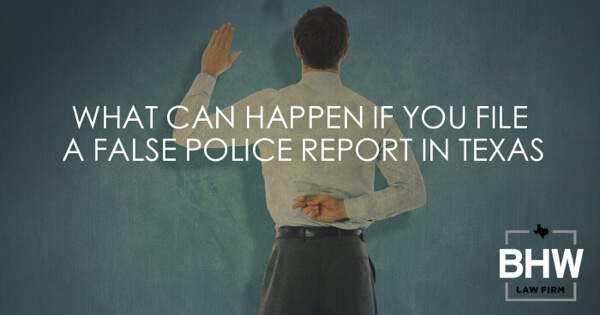
 As Fort Worth criminal defense attorneys, we are often asked by witnesses and victims what might happen if it comes to light that the story they told the police was not exactly true. We often see this in
As Fort Worth criminal defense attorneys, we are often asked by witnesses and victims what might happen if it comes to light that the story they told the police was not exactly true. We often see this in 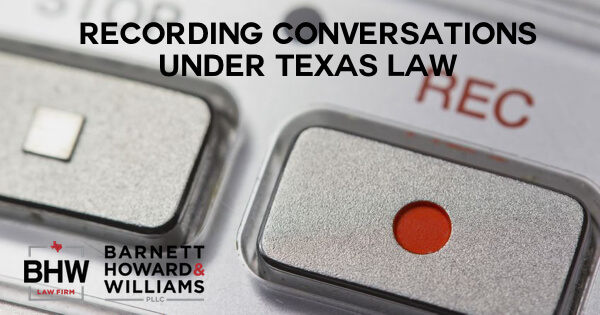
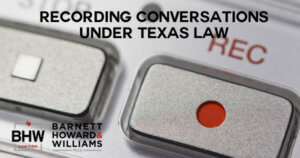 With roadway cameras at nearly every street corner, video surveillance in businesses, doorbell cameras on homes, web cams on computers, and recording capabilities on mobile phones – we must navigate carefully in a digital world. We’ve seen titillating news reports exposing a secret audio tape of a public figure having scandalous phone conversations, or video surveillance of questionable traffic stops that escalate in shocking fashion. You may have had a suspicious feeling that you were being recorded, or on the other hand, felt as if you needed to record a conversation with another for your own protection.
With roadway cameras at nearly every street corner, video surveillance in businesses, doorbell cameras on homes, web cams on computers, and recording capabilities on mobile phones – we must navigate carefully in a digital world. We’ve seen titillating news reports exposing a secret audio tape of a public figure having scandalous phone conversations, or video surveillance of questionable traffic stops that escalate in shocking fashion. You may have had a suspicious feeling that you were being recorded, or on the other hand, felt as if you needed to record a conversation with another for your own protection.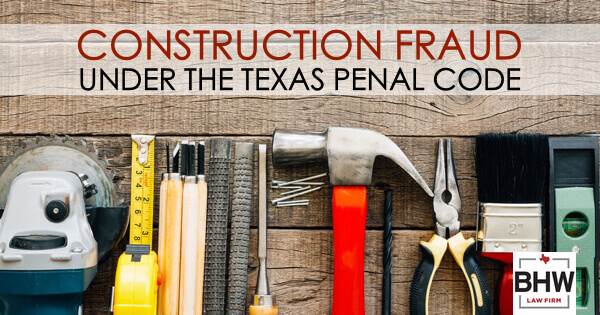
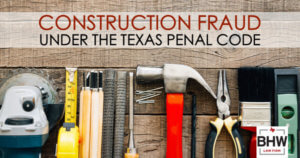 Have you sustained property damage in a powerful storm? If so, you probably had to call a contractor to do necessary repairs. It is sometimes customary in the construction industry for contractors to ask homeowners to pay for some of the work up front, and pay the remaining balance upon completion. Some contractors will ask you to fork over a hefty deposit to someone you do not know, yet you are trusting to get the job done. You are not alone. The good news is that most contractors will operate above the board. Even though social media reviews and ratings sites, such as
Have you sustained property damage in a powerful storm? If so, you probably had to call a contractor to do necessary repairs. It is sometimes customary in the construction industry for contractors to ask homeowners to pay for some of the work up front, and pay the remaining balance upon completion. Some contractors will ask you to fork over a hefty deposit to someone you do not know, yet you are trusting to get the job done. You are not alone. The good news is that most contractors will operate above the board. Even though social media reviews and ratings sites, such as 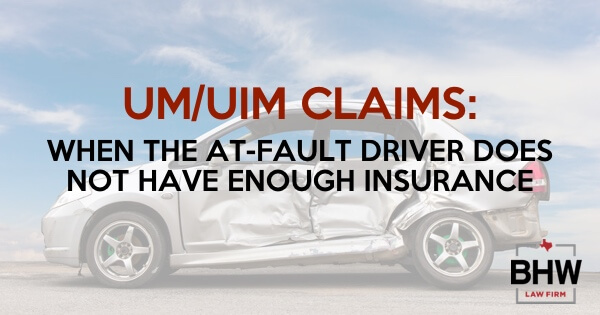
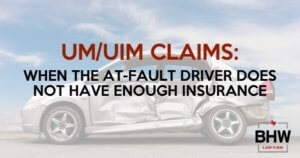 Texas law is clear that every driver must maintain financial responsibility (auto insurance). But, the truth of the matter is that there are thousands of drivers on Texas roads who are underinsured with a minimum policy or not insured at all. What this means is that if you are hit and injured in a car wreck by one of these uninsured or underinsured drivers, you may have to use your own insurance to pay for your medical bills, lost wages, lost ability to work and/or other damages.
Texas law is clear that every driver must maintain financial responsibility (auto insurance). But, the truth of the matter is that there are thousands of drivers on Texas roads who are underinsured with a minimum policy or not insured at all. What this means is that if you are hit and injured in a car wreck by one of these uninsured or underinsured drivers, you may have to use your own insurance to pay for your medical bills, lost wages, lost ability to work and/or other damages.

 This was the 5th year for our law firm to offer scholarships. In honor of the sacrifices of our military veterans, we decided to that the scholarships should be connected to military service. The first scholarship is a $500 award for a
This was the 5th year for our law firm to offer scholarships. In honor of the sacrifices of our military veterans, we decided to that the scholarships should be connected to military service. The first scholarship is a $500 award for a 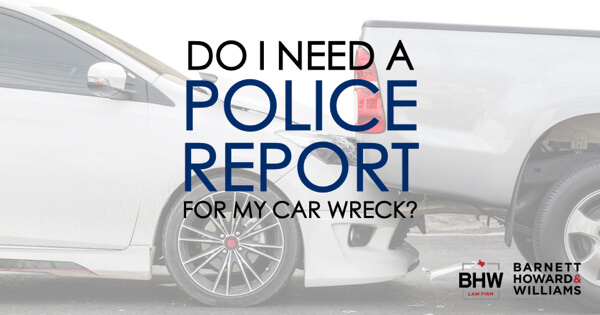
 Many people involved in motor vehicle collisions may not have police or accident reports documenting the specifics of the wreck. Sometimes it could be because the wreck was not reported and the police were never called. Other times, the police may have been called but simply did not respond. Law enforcement agencies often lack the resources to respond to each and every car wreck that occurs in their jurisdiction. More and more police agencies are putting policies into place that do not require them to respond to what the agency deems a “minor” wreck. The problem is that sometimes a wreck that law enforcement deems “minor” may actually have major long-term consequences (and injuries) for the individuals involved.
Many people involved in motor vehicle collisions may not have police or accident reports documenting the specifics of the wreck. Sometimes it could be because the wreck was not reported and the police were never called. Other times, the police may have been called but simply did not respond. Law enforcement agencies often lack the resources to respond to each and every car wreck that occurs in their jurisdiction. More and more police agencies are putting policies into place that do not require them to respond to what the agency deems a “minor” wreck. The problem is that sometimes a wreck that law enforcement deems “minor” may actually have major long-term consequences (and injuries) for the individuals involved.
 Rideshare companies like Lyft and Uber have risen to prominence over the last several years, grabbing a sizable market share from traditional taxi cab and town car companies. Additionally, there has been a surge in food delivery services (like DoorDash) and contract delivery drivers for Amazon. With more and more of these companies offering rides and deliveries from their part-time drivers, we are also seeing accidents involving the drivers for these companies. These accidents can sometimes have confusing liability issues that accompany them. It is important to know how to proceed and what you are entitled to if you are involved in an accident with a rideshare driver, as a passenger or another driver.
Rideshare companies like Lyft and Uber have risen to prominence over the last several years, grabbing a sizable market share from traditional taxi cab and town car companies. Additionally, there has been a surge in food delivery services (like DoorDash) and contract delivery drivers for Amazon. With more and more of these companies offering rides and deliveries from their part-time drivers, we are also seeing accidents involving the drivers for these companies. These accidents can sometimes have confusing liability issues that accompany them. It is important to know how to proceed and what you are entitled to if you are involved in an accident with a rideshare driver, as a passenger or another driver.







